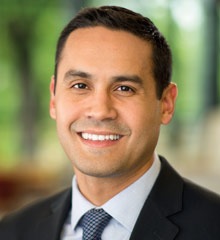
Am I Reading The Onion or The New York Times?
 The Onion is a paragon of satirical news. Unfortunately, too many of us are not in on the joke.
The Onion is a paragon of satirical news. Unfortunately, too many of us are not in on the joke.
Literally Unbelievable is a website that captures those priceless moments when beguiled individuals post “news” items from The Onion as if they were a reputable source of information instead of an amusing—and often insightful—distraction. Some read “Brain-Dead Teen, Only Capable of Rolling Eyes and Texting, To Be Euthanized” and were aghast. Some read that J.K. Rowling was a pseudonym for Newt Gingrich and were confused. Some read that President Obama confessed to running Jimmy Carter over with his car and felt vindicated. And, most of all, those of us in the know get a good laugh.
We learn much about ourselves in these posts. We learn how quick we are to paint our opponents with the worst intentions. But we also learn a critical pedagogical lesson about the uneasy relationship we have with authority and sources of information today.
Most of our students are likely savvy enough to spot The Onion’s extravagant satire. Younger generations will only become increasingly adept at spotting the telltale signs: the tongue-in-cheek tone, the subtle line between the ridiculous and sublime. And yet a larger question remains: how do we know which authorities are reliable on the internet and in the wider world it reflects? What information can we trust?
 On the internet, anyone can post, anyone can blog, anyone can opine whether expert or amateur, professional or dilettante. This is a pedagogical challenge for us, not so we can teach students to lament the loss of informational gatekeepers but to revel in the openness of these digital landscaped and be critical in how we consume, interact, and communicate in these open media.
On the internet, anyone can post, anyone can blog, anyone can opine whether expert or amateur, professional or dilettante. This is a pedagogical challenge for us, not so we can teach students to lament the loss of informational gatekeepers but to revel in the openness of these digital landscaped and be critical in how we consume, interact, and communicate in these open media.
These days we are in need of a digital wisdom. A wisdom that can parse good information from bad, that can analyze sources to determine tone and veracity.
How can we tell the difference between fact and fiction, news and satire? How do we parse biases, ours and those of others? And more importantly in our vocation as teachers, how do we equip students to be wise, thoughtful, astute consumers and producers of knowledge?
What our students need most is the ability and wisdom to curate their sources of information. Recently, another satirical news website “announced” the discovery of an ancient manuscript confirming Jesus’ miracles. What does it reveal about us that so many wanted this discovery to be true? What does it say about the way we are educated and nurtured into digital wisdom that so many could not see the satirical seams in this story?
In short, I’m convinced that education today is about formation before it is about information. Data is a precursor of wisdom, not its exclusive content.
And, more importantly, how do we help students figure out what to do with this information? What kind of learners and teachers will they be equipped to be with all the internet’s power at their disposal?